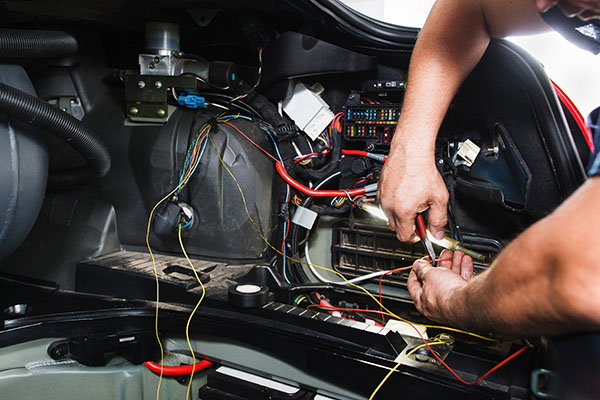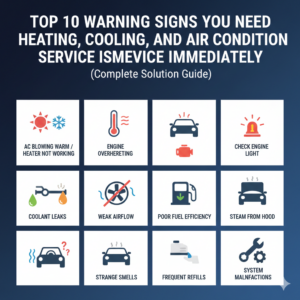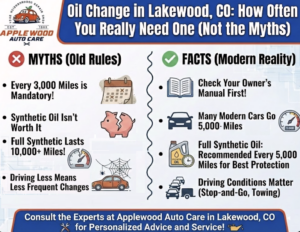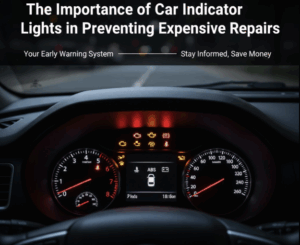The electrical system of your car play a very important in its functionality as it provides support to other components from the engine, lights, and entertainment system. If there are underlying problems with the vehicle such as a flickering light, dead battery, or slow cranking, it is important to find the root cause before it gets worse. This article will discuss the causes of these warning signs and how to fix them.
Table of Contents
ToggleIdentifying Your Vehicle Electric System
The electrical system of a vehicle is composed of three main parts:
Battery: Supplies power to the car and functions when the engine is off.
Alternator: Powers the electrical systems and charges the battery once the engine is running.
Starter Motor: Starts the engine once the ignition key is turned on.
These components are important, and if one or more malfunctions, the vehicle may face electrical issues and in that case you need to contact professional battery and electrical services in Lakewood.
Warning Signs and Causes of Electrical Problems
1. Dim Lights or Flickering
If the interior lights keep flickering, it may be a wiring problem or due to a weak battery.
The Alternator Failure That Led to a Breakdown Case Study:
According to study by AAA found that 30% of roadside electrical failures were due to alternator breakdowns. In one case, a driver noticed flickering headlights at night but he ignored the warning signs. Within few days, their car completely lost power while driving on the road. Mechanics later diagnosed a failing alternator that could no longer charge the battery.
How To Fix It:
To fix this, try using a multimeter to check the alternator voltage output: it should read 13.8 to 14.2 volts. Additionally, ensure that there are no loose or corroded battery terminals, and check for any wiring disconnections or corrosion.
2. Dead Battery: More Than A One-Time Issue
Dead batteries are one of the most common forms of electrical problems in vehicles. As with everything else, they have a shelf life, and continuous dead battery incidents can indicate deeper issues like parasitic drains, bad alternators, or corroded terminals.
Data Driven Insight: The Average Lifespan of A Battery And Its Failure Rates
According to most competent sources, the average lifespan of a car battery is somewhere between three to five years, but may be shorter for regions with extreme climate.
A J.D. Power report stated that a shocking 60% of car batteries fail because of extreme heat and cold.
What You Can Do About It:
- Conduct a voltmeter test on the battery (a full charge requires 12.6 volts). Inspect the terminals for any corrosion. If there is some, use a soda solution to clean it up.
- If your battery is over 4 years old, you might want to think about getting a new one.
3. The motor can be hard to crank over, or you might be able to hear a loud clicking noise when trying to start.
If your car make a clicking sound when you attempt to start it or refuses to start altogether, then it is likely that the battery is dead. It could be an old battery, damaged ignition switch, or a broken starter.
Silent Starter issue real example:
A Car would either not start or sit silent while cranking the engine. The problem? Worn-out starter solenoid going bad under heat stress failure. Replacing the motor starter had the problem go away.
Starter clicks but does not crank insight from an expert.
A car starts making rapid clicking noises when a driver attempts to start the motor. This clicking noise is the starter loose not steaming and can result in many issues. An auto mechanic can help identify if the reason is caused by a weak battery or dying solenoid.
The way to solve this problem can take the approach of jumpstarting the car. Maybe it’ll work, but you will have to monitor the working voltage when the car is off. If the voltage is equal to or above 12.4 volts, then it is recommended that the starter motor has a cap put on it: for the case of sudden failure in the car battery.
Preventative Maintenance Tips
✔ Get up and personal with the terminals by cleaning them regularly before checking the voltage on the battery.
✔ Like all great super hero’s, yet again don’t forget when looking for a myth buster!
✔ As much as possible, refrain from straining the electric system with too many aftermarket add-ons.
✔ Check your alternator and start the servicing interval after 50k miles.









